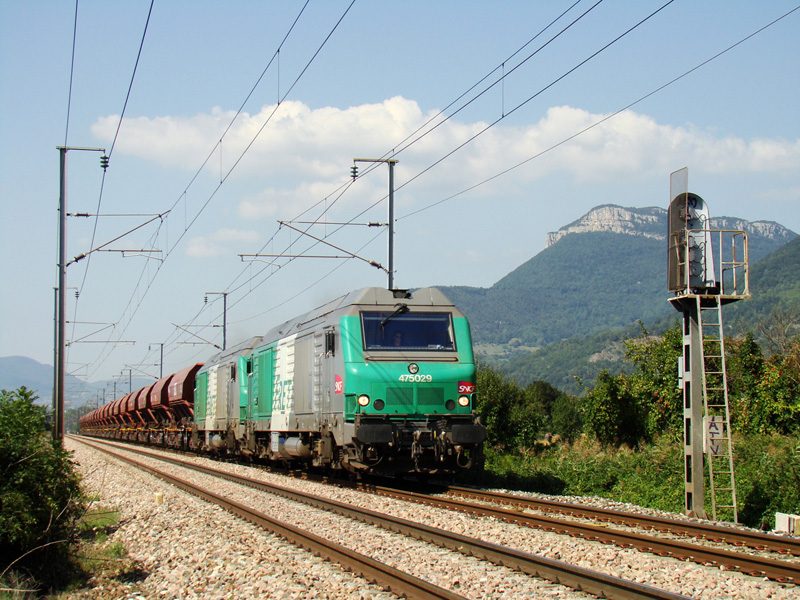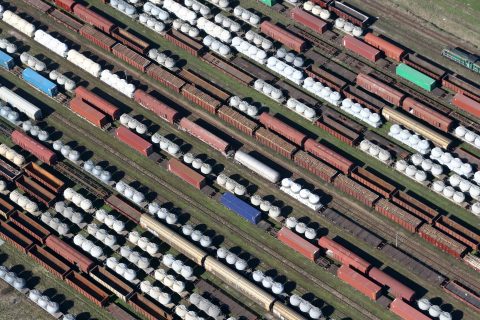How France keeps its trains running amidst a nation-wide lockdown

France is one of the countries in Europe where the coronavirus has been most severe, especially in the eastern region of Alsace. This has had an impact on railway traffic: nothing is the same anymore. But freight traffic has not stopped. In fact, 95 per cent of the customer demand has been met since the outbreak of the pandemic, says SNCF Réseau, the infrastructure manager of the French railway network.
Freight traffic runs, but not as usual. The French railway network has a modified time schedule, with some parts closed during certain hours. There have been disruptions in the activity of a number of signalling boxes or fuel stations, and then there is a reduced workforce due to sickness, the infrastructure manager explains.
“The COVID-19 situation has presented challenges across Europe, with the Eastern part of France, where we have a large part of our French operations, being particularly badly affected”, acknowledges Paul Hodgson, Director of International Activities at CFL cargo.
Vital goods
His company is one of the many that had no option but to continue operating trains on the network. While some international companies explain that they currently avoid the route through France as they have alternatives, there are those who continue to provide the region with essential goods.
In an interview with VRT, SNCF Réseau spoke of two types of transport: industrial continuity trains (steel industry, public works, chemistry unrelated to medicines, etc.) and vital trains (chlorine for drinking water, hydrocarbons and LPG for travel or other products for factories that must not stop). This last one is by far the most numerous, and even increased a little.
The Challenge
And so the challenge for SNCF Réseau has been to maintain the network operational so as to serve vital flows on strategic routes, among which the international corridors. The company has introduced different measures to assure this continuity of operations. For example, it is in touch with the railway users on a daily basis.
“The situation of the network and the borders is discussed and transport plans are adapted. This means for example that when we were not able to keep a line fully open 24 hours, its opening and closures times were adapted to the specific passage needs of our clients”, a spokesperson explains.
Flexibility
The same flexibility has been required from the operating companies, which have had to adapt to modified working conditions. “There are sometimes short-term changes in working hours, as timetables have had to be adapted due to modified network opening hours. Close contact has been maintained with our customers, in order to best meet their requirements during this period, and of course with SNCF Réseau to ensure that our trains can operate”, Hodgson explains.
In particular, traffic at the border points have proven to be a challenge at times. “If we look at the borders within the Rail Freight Corridors’ scope, we can see that most borders are operational, although the times have been adapted. Borders may for example be closed at night”, the company explains. There have been restrictions in the opening hours of the Apache-Perl border with Germany, Hodgson acknowledges. “But this line was kept open at night, when most freight trains operate.”
Freight prioritised
An advantage of this period is that passenger traffic has dropped to almost zero, which has created a lot of extra capacity on the tracks. The priority has been clearly given to freight trains, SNFC Réseau confirms.
“While freight railway undertakings’ demands were somewhat reduced in connection to the closure of certain industrial plants and with the impacts of the crisis on RUs’ own organisation, we were jointly able to run an average 65 per cent of freight trains as compared to a ‘normal’ day all along.”
Good response
In general, the response to the ongoing crisis has been very well, various companies agree. “I think that the railway industry has reacted very professionally, especially the staff that are out on the ground keeping the trains running, both within the railway operating companies, and on the infrastructure side. As rail freight operators we keep all kinds of essential supplies moving, and this would not have been possible without the support and cooperation that we have received from SNCF Réseau, at all levels of the organisation, said the CFL representative.
“All has not been perfect of course, and we know how challenging the situation has been for our customers, for us all. But I believe that overall we have responded effectively and with much commitment to the crisis”, the SNCF Réseau spokesperson concludes.
You just read one of our premium articles free of charge
Want full access? Take advantage of our exclusive offer






